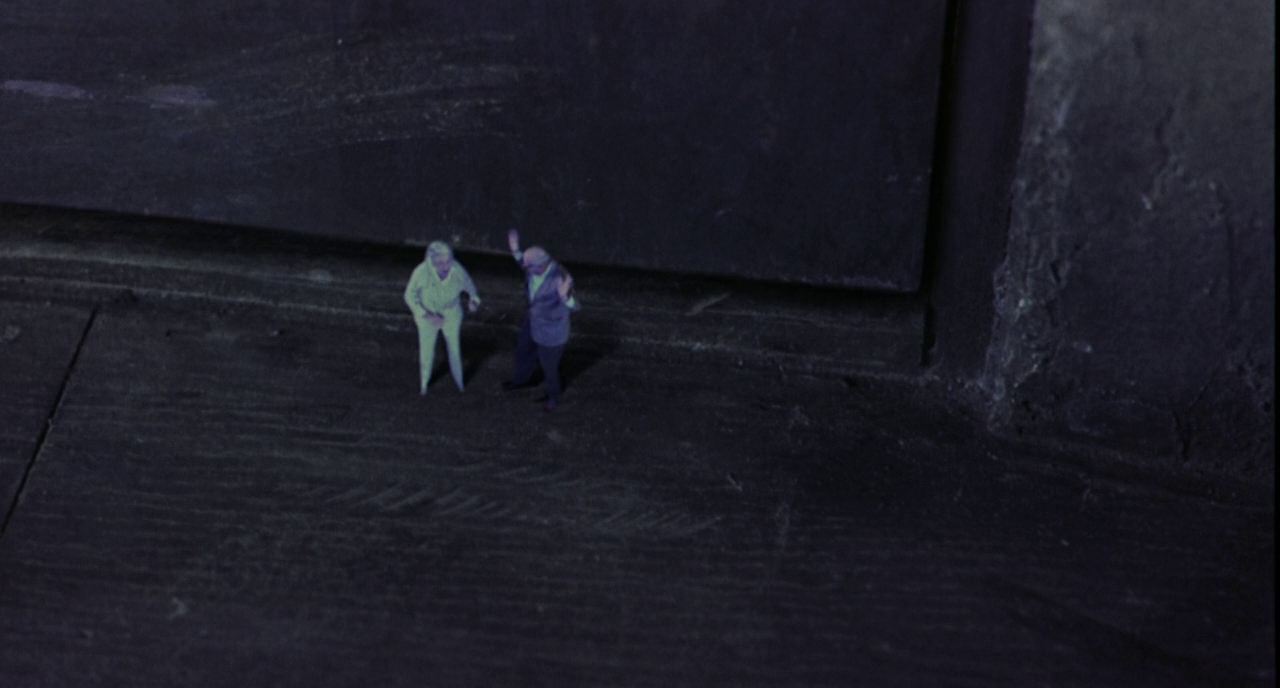Summary:
After a car wreck leaves a woman without memory, she and cheerful aspiring actress embark on a trip across Hollywood searching for clues.
My Thoughts:
How does one go about describing “Mulholland Drive” to someone who hasn’t seen it? On the surface level, “Mulholland Drive” is a pseudo-psychedelic noir film with romantic undertones and a few shocking twists and turns. But below the surface, which is where director David Lynch really excels, this film is an existential journey into the metaphysical, one that examines the human condition. This film comments on love, loss, betrayal, and death, and it does so in a way that only director David Lynch could do. Our journey through Hollywood to find answers starts out as a dream and quickly turns into a nightmare, one that forces the viewer to examine him or herself, what they hold dear in this life, and eventually, it puts the viewer face to face with their own mortality.
“I had a dream about this place.”
After a woman (Laura Harring, “Inland Empire”) has an accident and looses her memory, she comes in contact with a perky aspiring actress named Betty (Naomi Watts, “The Painted Veil”), whom vows to help the woman find some answers. Meanwhile, throughout Los Angeles, detectives try to figure out what happened at the scene of an accident, a film director (Justin Theroux, “Your Highness”) struggles to finish his latest work, and a mysterious Bum (Bonnie Aarons, “The Conjuring 2”) lurks behind a Winkie’s restaurant.
I’m not going to talk too much about the plot of this film; as it is a mystery, most of the fun comes from puzzling out the mystery. The overall plot is actually pretty basic, though the way this story is told, and the dream sequences that the viewer is put through make the story feel more complicated than it actually is. Lynch does this in a lot of his film; look at “Eraserhead”. That film is just about a man who gets his girlfriend pregnant, and the fallout of that. But the way that the story is told overall gives the movie an altogether alien feeling, and it leads the film to be interpreted on many different levels. This film is very much the same; the plot is about a woman searching for her lost identity (or at least, that’s what it seems like at the beginning), but the dreams and the overall direction add to the complexity of the movie’s meanings.
One thing I love about the direction and the writing is how intentional it is. Every line, every movement the characters make is all calculated to a tee. I’m sure many people who aren’t used to Lynch’s films would watch this and think that the acting feels stilted and awkward, but that too is completely intentional. The way that Betty speaks sounds like she’s trying out for a daytime soap opera; the way that people react to things is almost always overstated. There’s a part near the beginning of the film when Betty bids farewell to an elderly couple that sat next to her on the plane in, and after that scene we follow the elderly couple in their car for a moment; even the way the couple sits in the car, with too-wide grins stretched across their faces and their eyes incredibly wide, even that is intentional.
Lynch lets every motion and detail breathe, and that too allows for more meaning to be found in every action. His characters take their time talking, and sometimes there are unnatural pauses in conversations. It allows us time to process everything, but it also gives us time to take the dialogue a step further, because again, most of the dialogue is very direct and intentional. Here’s an example from a scene where two characters are eating in Winkie’s restaurant:
Dan: I just wanted to come here.
Herb: To Winkie’s?
Dan: This Winkie’s.
Herb: Okay, why this Winkie’s
Dan: It’s kind of embarrassing.
Herb: Go ahead.
Dan: I had a dream about this place.
Herb: Oh, boy.
Dan: See what I mean?
Herb: Okay, so you had a dream about this place. Tell me.
So why does Lynch use ten lines of dialogue to establish a fact that could’ve been established in one simple line? Because he wants us to pay attention, and because he wants us to realize a few things, the most important of which is that the Winkie’s that the two characters are having a conversation in actually exists in two places: in the real world, and in a dream.
And really, who is to say which of the places is actually more real, and which one of those places holds the most meaning?
There are double meanings and triple meanings to plenty of things in this film, but as the actual story unravels, that is, the actual story of what happens comes to light, it becomes apparent that Lynch is working on a metaphysical level as well as on a physical level. He’s telling a story of love and betrayal but also one about the human condition in general (we all live, love, and die).
Verdict:
When I think of Lynch, my mind immediately jumps right to “Mulholland Drive” and “Eraserhead”; and I’d be hard pressed to pick a favorite between the two. In my opinion, both films are essential viewing for any cinephile or even anyone who has an interest in arthouse films. This film is as bizarre as it is entertaining and thought-provoking.
Review Written By:






